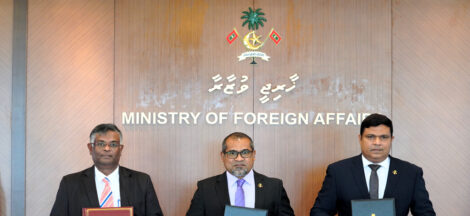NEW DELHI: The big trading powers like United States, European Union and China have set their priority as reform including getting the dispute settlement system on track, continuation of moratorium on tax on electronic transmissions and negotiations on agriculture and fisheries subsidies for the 13th Ministerial Conference of the World Trade Organisation at the World Trade Organisation (WTO).
“…reform is squarely on the agenda for this week – and that really says something. It demonstrates the need to fundamentally re-orient the global trading system to build our middle classes together and to make sure the WTO remains relevant and effective,” US Trade Representative Katherine Tai said in her opening address.
The one reform she highlighted was in the dispute settlement system where the goal is not just to go back to the way things used to be, but rather to provide confidence that the system is fair and to better allow Members to settle their disputes.
The existing dispute settlement at the WTO has been non-functional since 2019 when the US blocked appointment of members to the appellate body during the Trump administration after many of its rulings went against it. The US is mooting a dispute settlement system that relies more on negotiations.
EU Trade Commissioner and Executive Vice President Valdis Dombrovskis said, “we need to work together to fix the dispute settlement system. We hear the criticism of the current system loud and clear. And that’s why we are working hard to reform dispute settlement at the WTO.”
He said e-commerce is a rapidly growing force in global trade and the EU will give e-commerce negotiations further impetus at MC13, and also work hard to extend the e-commerce moratorium. Tai and China’s Minister of Commerce Wang Wentao also talked of extending the e-commerce moratorium.
“There is the need for updated rules on industrial subsidies, including in the context of climate and sustainability. We also need to conclude negotiations on fisheries subsidies. And we need a balanced outcome on agriculture, reflecting also on food security aspects,” EU trade commissioner.
While India is keen on getting a permanent solution to the issues of public stockholding of foodgrains for food security, other issues in agriculture centre around reduction of subsidies so that big exporters have access to more markets. Food importers want export restrictions that some of the countries place from time to time to be made more transparent.
China also asked for advances in negotiations on topics such as agriculture, food security and fisheries subsidies, to protect the livelihood of small-scale farmers and artisanal fishermen. These are also the demands of the Indian side.
Wang also pushed for incorporating the Agreement on Investment Facilitation for Development into the WTO’s legal framework to enable the role of investment in driving growth. China is the moving force behind this agreement that seeks to make investment rules more predictable and transparent in the countries joining the pact. Out of the 166 WTO members, 123 countries have signed on to the pact. As not all members are joining it, this agreement if allowed to be incorporated in WTO will form part of Annex 4 and will be binding only on the signatories. Formal inclusion in the pact in WTO will still require approval of all the members and India is opposing it on the grounds that investment is a non-trade issue. It has not joined the pact because it wants to protect its autonomy to take investment-related decisions.
Source: The Financial Express



